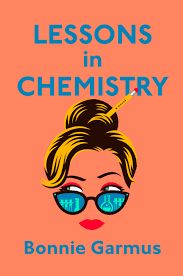Chapter 42: Personnel
byPersonnel within the scientific community in January 1962 seemed to collectively marginalize Elizabeth Zott, a former television scientist who had once been the face of an intellectual revolution. Despite her popularity, which stemmed from her widely followed cooking show that cleverly incorporated science, Elizabeth faced unexpected challenges. The root of her troubles lay in a misleading profile published by Life magazine. Rather than celebrating her as a pioneer in her field, the article trivialized her achievements, reducing her to a caricature of a television personality. Esteemed chemists and researchers began to cast doubt on her credentials, and the institutions she had hoped would offer her opportunities remained silent. Her frustration grew as her professional aspirations seemed to fade into the distance. Even her friend Harriet, who had always been a source of encouragement, suggested she consider returning to television. But for Elizabeth, such a move felt like a step backward, one that would tether her to the misconceptions she was determined to leave behind.
Amid this tumultuous period, Elizabeth received an unexpected and cryptic phone call from Miss Frask, a figure from her past at Hastings Research Institute. Once a minor player in Elizabeth’s career, Miss Frask now appeared to carry a weight of urgency and authority in her voice. She implored Elizabeth to visit Hastings, mentioning a significant development that demanded her attention. Frask also hinted at an influential investor who had taken a particular interest in Elizabeth’s work, adding an air of intrigue to her request. Elizabeth, initially skeptical, found herself unable to ignore the potential significance of the call. She decided to revisit Hastings, a place fraught with unresolved tensions, not least the mystery surrounding Calvin Evans’s missing research boxes.
While Elizabeth contemplated her return to Hastings, Harriet faced her own personal and professional dilemmas. Stuck in an oppressive marriage that stifled her ambitions, Harriet longed to break free and carve out an independent identity for herself. She aspired to work in the magazine industry, a realm that, while dominated by men, offered a glimmer of possibility for women seeking to redefine their lives. Despite her enthusiasm and determination, Harriet encountered repeated rejection. Women’s magazines, which she had once turned to for inspiration and guidance, now seemed to offer only superficial advice that did little to address her deeper struggles. Her challenges reflected the broader societal constraints faced by women of the time, who were often forced to navigate a world that denied them meaningful agency.
When Elizabeth finally arrived at Hastings, she was met with an atmosphere that was both familiar and strikingly different. Unlike her previous visits, where she had faced indifference or outright hostility, this time, she was greeted with a sense of respect and acknowledgment. Employees who had once dismissed her now seemed to recognize her importance, and she was ushered into a meeting with Miss Frask. To Elizabeth’s surprise, Frask was now legitimately the head of Personnel at Hastings, a position she had once been mistakenly credited with holding. Frask wasted no time in revealing the purpose of the meeting. The Parker Foundation, a powerful organization that had recently acquired a controlling stake in Hastings, wanted Elizabeth to take on a leadership role in a groundbreaking scientific initiative. The offer represented not only a professional resurgence for Elizabeth but also a chance to contribute meaningfully to the scientific community—a dream she had long thought unattainable.
As Elizabeth absorbed the significance of the Parker Foundation’s interest, she learned that the tides had turned against her longtime adversary, Dr. Donatti. Once a looming figure in Elizabeth’s professional life, Donatti had been discredited and was now facing the consequences of his unethical actions. For Elizabeth, this development added a layer of vindication to the moment. The fall of Donatti symbolized the long-awaited justice she had hoped for, affirming that her struggles and persistence had not been in vain.
This chapter serves as a testament to Elizabeth’s resilience and determination. Despite facing systemic biases, personal setbacks, and professional roadblocks, she remained steadfast in her pursuit of justice and recognition. The support of the Parker Foundation marked a turning point, offering her the platform to continue her scientific work on her own terms. The narrative highlights themes of redemption, the power of perseverance, and the unexpected alliances that can emerge in times of adversity. For Elizabeth, this chapter was not merely about reclaiming her career but also about proving to herself and others that integrity and talent could triumph over the forces that sought to diminish them. Her journey serves as an inspiration, a reminder that even in the face of overwhelming odds, persistence and belief in one’s abilities can lead to transformative change.


